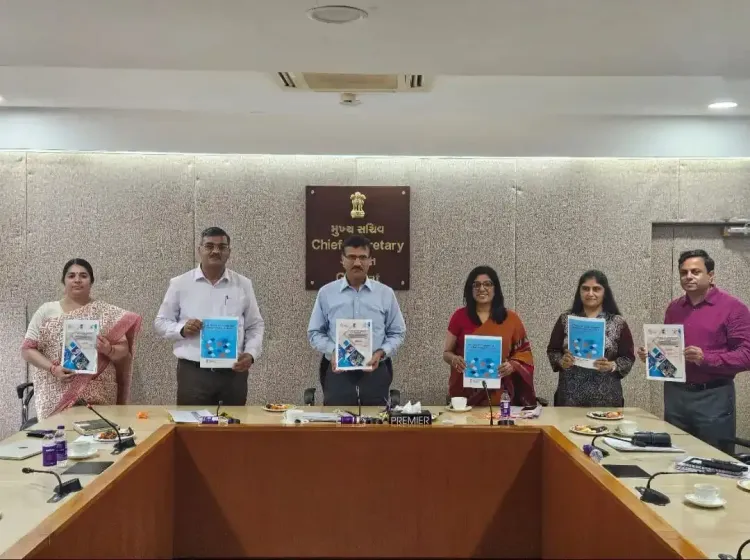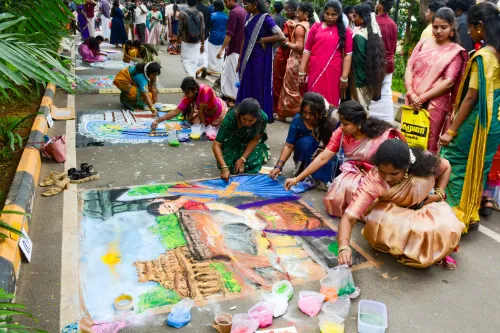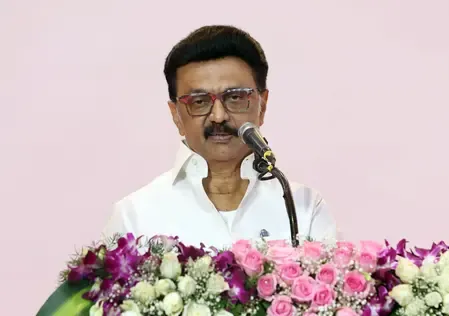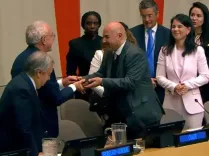What Actions are Being Taken in Gujarat to Tackle Antimicrobial Resistance?

Synopsis
Key Takeaways
- Gujarat's proactive approach to combat AMR involves the State Convergence Committee.
- Key reports on antibiotic usage and resistance patterns were unveiled.
- Inter-departmental collaboration is essential for effective solutions.
- The One Health approach integrates various health sectors.
- Public health strategies will focus on enhanced regulation and stewardship.
Gandhinagar, July 2 (NationPress) In a proactive move to address the escalating challenge of antimicrobial resistance (AMR), the second assembly of the State Convergence Committee on AMR took place in Gandhinagar, led by Chief Secretary Pankaj Kumar Joshi on Wednesday.
The gathering convened senior officials from diverse departments to evaluate Gujarat's action plan and advancements under the State Action Plan for Containment of Antimicrobial Resistance (SAPCAR-G).
During this session, the Chief Secretary unveiled two pivotal state-level reports: the GUJSAR Surveillance Report and the Antibiotic Usage Report. These documents shed light on significant trends in antibiotic consumption and resistance patterns throughout the state, offering vital recommendations for enhancing AMR surveillance and promoting the responsible use of antibiotics.
The Chief Secretary acknowledged Gujarat’s impressive initiatives aimed at AMR containment and urged officials to maintain their contributions at the national level, particularly within the One Health Steering Committee, chaired by the Principal Scientific Adviser to the Prime Minister.
He stressed the necessity of inter-departmental cooperation to tackle the complex issue of antimicrobial resistance.
Decisive actions were made during the meeting to bolster public health responses through improved regulation, stewardship, and convergence-based strategies. Discussions also revolved around emerging concerns regarding AMR and the One Health approach, which integrates human, animal, and environmental health for comprehensive disease management.
Attendees included senior officials from the Health, Agriculture, Animal Husbandry, Science & Technology, and the Gujarat Pollution Control Board (GPCB). Key figures present were Additional Chief Secretary of Health Dhananjay Dwivedi, Urban Health Commissioner Harshad Patel, and Rural Health Commissioner Ratankunwar Gadhvi, among others.
Antimicrobial Resistance (AMR) is an increasing public health concern globally, and Gujarat is no exception. With its substantial population, swift urbanization, and widespread antibiotic use in both human and veterinary sectors, Gujarat faces distinctive challenges in managing AMR.
The overuse and incorrect use of antibiotics in healthcare, agriculture, and animal husbandry play a significant role in the emergence of resistant bacterial strains, rendering previously treatable infections more difficult and costly to manage.
Furthermore, Gujarat’s heightened industrial activity and pharmaceutical presence raise environmental issues related to antibiotic contamination.
By examining AMR at the state level, Gujarat aims to better track resistance patterns, regulate antibiotic usage, and execute targeted interventions through the One Health approach, which connects human, animal, and environmental health.










